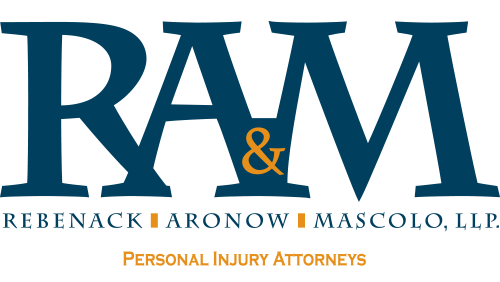Common Mechanical Problems That Cause Truck Accidents in New Jersey
As winter approaches, truck drivers across New Jersey should have their vehicles inspected for mechanical issues. According to statistics from the Federal Motor Carrier Safety Administration, just under 6% of fatal large truck crashes in 2017 were due to mechanical issues. A truck driver who fails to address common mechanical problems that cause truck accidents could be held liable should an accident occur.
Brake Failure
On hills and steep inclines, brake failure can be especially catastrophic for large trucks. Some of the most common types of truck accidents are rear-end collisions. In other cases, a truck may go through an intersection and slam into another vehicle or a pedestrian. When there is ice, brakes work less efficiently and can cause accidents. This is especially true on open highways when semis gain momentum.
When brakes are defective, semis can also veer off the road, roll over and cause serious injuries to the driver. The trucks can run into buildings and injure people as well. The brakes do not need to be defective to stop working. If semi brakes are not maintained with the right products that manufacturers recommend and are not inspected by professionals, there can be problems that lead to brake failure on the road. All drivers should have their brakes inspected before the worst of the winter weather arrives.
Steering Problems
When there are problems with the steering, semis can roll, swerve into other drivers in adjoining lanes or hit oncoming cars. One common issue that can occur is with a drag link. Also, the ball joint connecting the drag link may have problems. Drivers should also check for issues with the hydraulic fluid reservoir. Steering gear abnormalities contribute to some crashes, and arm connector failures can also cause serious problems. A thorough inspection of the steering column and components may help prevent some accidents.
Tire Blowouts
In some cases, tire blowouts can happen due to unforeseen circumstances on the road. However, some blowouts are entirely preventable. One common problem is that retread tires are put on the semi instead of new tires. When new tires are required, cutting a corner in this way can cost a driver and other motorists their lives. Although it is difficult to manage a large truck with 18 functional tires, one tire blowing out can cause the entire semi to swerve and hit another car or multiple cars. Semi drivers can reduce their chances of fatal accidents from tire blowouts by choosing new tires instead of retread tires.
Tire Disconnection
Tire disconnection is an issue that drivers may have a hard time detecting. A loose tire or a faulty part that is required to keep the tire in place can cause it to fall off completely. This situation could be even more difficult to control than a blown-out tire. Semi drivers can reduce their chances of a tire falling off by having the tires inspected carefully by a reputable mechanic. Also, it is important to follow the recommended schedule for rotating tires and replacing any necessary parts.

Headlight Problems
One of the biggest problems is having one or both headlights burn out. If it happens during a nighttime driving situation, the trucker could end up swerving off the road and rolling the truck. If a semi has one headlight out, it may look like a smaller approaching car to another motorist at night. If the motorist assumes that the light is a car in the distance, he or she may try to pass someone else. Such visual errors could lead to a head-on collision with the big truck. Dim headlights can also be dangerous to semi drivers. They may not see deer or other obstructions in the road, which may cause them to swerve suddenly and hit another vehicle that is moving. Having the headlights inspected regularly can help reduce the risk of such issues.
Malfunctioning Brake Lights and Turn Signal Lights
When a brake light malfunctions, a driver behind a large truck may not know that the truck is slowing down until it is too late. If this happens on a freeway with a high speed limit, the impact can kill a driver of a smaller car. Since smaller cars can wedge under semis that do not have the right type of reinforcement guard railing in the back, the damage could be devastating. If a big truck’s turn signal light is out, a rear-end crash is also more likely to happen. Other motorists may not know to slow down, and it can be even harder to detect a slowing semi with defunct indicator lights at night. Unfortunately, it’s difficult for truck drivers to know when their trailer brake lights are out.
Improper Trailer Attachment
Large truck operators should always check their trailers for safety during the cargo-loading process. If the trailer is not attached properly, it can swerve on the road. This is especially dangerous during the winter when it is windy and the roads may be icy. In some cases, a trailer can completely detach. It may hit drivers who are approaching it from behind or veer into neighboring lanes. Proper attachment protocols and maintenance of related parts are essential tasks to reduce the risks of swerving or detaching trailers.
Complicating Factors Contributing to Mechanical Problems Truck Accidents
Human errors often combine with mechanical issues, creating a perfect storm where a crash could occur. For example, truck drivers may be tired when they are driving. Today, driver fatigue is a bigger risk with truckers clocking more hours. The nationwide shortage of truck drivers leaves many of them overworked as well. Fatigue could lower a driver’s reaction time, leading them to swerve too late when an obstruction or other road issue emerges. An overworked trucker will also be more likely to skip basic maintenance tasks. For example, improper fluid levels can add risks. Worn-out windshield wipers can reduce visibility and make driving dangerous. When any of these complications are combined with mechanical problems that cause truck accidents, the results can lead to extensive motorist injuries or deaths.
What to Do After Mechanical Problems Truck Accidents
After any type of truck accident in New Jersey, the first and most important step is getting proper medical care. Once you are stabilized, the next step is finding a good truck accident attorney. Legal counsel will divert any correspondence from the negligent party or insurance company to the law firm. This gives you the ability to move on with your life and focus on recovering.
With truck accidents, the injuries are often severe or lifelong. One of the most important reasons to hire an attorney who is familiar with New Jersey trucking law is to get a fair settlement. To avoid expensive court proceedings or a trial, most negligent parties settle cases out of the courtroom. However, without an attorney to protect you, it is more likely that you will be offered an inadequate settlement. Our attorneys can assess your current and future needs and work hard to guide you to a fair settlement that will help you maintain your financial commitments. Please call us at RAM Law today to schedule a free consultation with a trucking law attorney. You can reach us at (732) 247-3600 at our New Brunswick office. To reach us at our Somerville location, please call (908) 448-2560.


